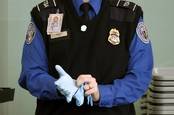Former Mozilla CTO Andreas Gal says he was interrogated for three hours by America’s border cops after arriving at San Francisco airport – because he refused to unlock his work laptop and phone.
Gal, now employed by Apple, today claimed he was detained and grilled on November 29 after landing in California following a trip to Europe.
He had attempted to pass through US customs via a Global Entry electronic kiosk. He wasn’t expecting a problem, since the Hungarian-born techie is now an American citizen, but it was not to be.
“On this trip, the kiosk directed me to a Customs and Border Patrol agent who kept my passport and sent me to secondary inspection,” Gal said. “There I quickly found myself surrounded by three armed agents wearing bullet proof vests. They started to question me aggressively regarding my trip, my current employment, and my past work for Mozilla, a non-profit organization dedicated to open technology and online privacy.”
Gal said the g-men were rather interested in his time at Firefox-maker Mozilla, and of his recent trip to Canada. They also went through his wallet and luggage, and this led to a request by the agents for Gal to unlock his Apple-issued iPhone XS and MacBook Pro so they could search it, it is claimed.
Given the devices were emblazoned with big red stickers reading “PROPERTY OF APPLE. PROPRIETARY,” and he had signed confidentially agreements with Cupertino, Gal said he asked for permission to call his bosses and/or a lawyer to see if he would get into trouble by handing over access. When this request was repeatedly refused, we’re told, he clammed up, taking the Fifth, and citing constitutional rights against unwarranted searches.
Irked by Gal’s refusal, it is claimed, the border agents told him he had no constitutional nor any legal protections, and threatened him with criminal charges should he not concede to the search. He said he was eventually allowed to leave with his belongings, the devices still locked, and no charges were pressed. Gal said the agents did take away his Global Entry pass, which allows express entry through customs, as punishment for not complying with their demands.
How random is random?
Gal believes the ordeal was not a random search gone awry, but rather a targeted attempt by the government to send a message. Certainly more and more security researchers report being grilled by US border patrol, if they can even get a visa to enter the country, that is.
“My past work on encryption and online privacy is well documented, and so is my disapproval of the Trump administration and my history of significant campaign contributions to Democratic candidates,” Gal noted. “I wonder whether these CBP [Customs and Border Patrol] programs led to me being targeted.”
Now, Gal has enlisted the help of the ACLU to probe into the brouhaha, and determine whether his civil rights were violated. The civil-liberties watchdog has filed a complaint [PDF] with the Department of Homeland security to determine whether the search violated the US Constitution and demand an investigation of whether the CBP’s entry policies are illegal.
“CBP’s baseless detention and intrusive interrogation of Andreas Gal and the attempted search of his devices violated his Fourth Amendment rights,” ACLU Northern California senior counsel William Freeman said of the complaint.
“Furthermore, CBP’s policies lack protections for First Amendment rights by allowing interrogation and device searches that may be based on a traveler’s political beliefs, activism, nation of origin, or identity.”
A spokesperson for the border patrol told us: “As a matter of policy, CBP can’t comment on pending litigation.” ®
Sponsored:
Re-designing Linux Security: Do No Harm

